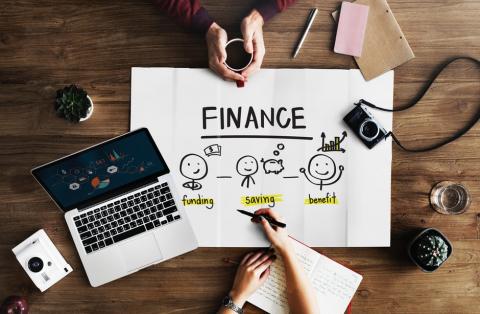Understanding the Basics of Personal Finance: A Beginner's Guide
Apr 19,2023
Too many people in their teens or twenties believe that they have decades before retirement and, therefore, don't need to worry about personal finance or saving money for a while. Even though the sentiment behind this idea is true, you would be better off learning the basics of personal finance earlier on in life so you don't build bad money habits.
As you might already know, bad financial habits are hard to break out of once set. It might be easier never to begin these bad habits in the first place.
Our personal finance guide below gives you the lowdown on what to do so you can get smart with your money right now, not later in life.
How Much Do You Spend Each Month?
You have to begin where you start. That is, you need to know your current financial situation. And if you are a university student, you are probably not spending a lot of money in any case.
Maybe your parents are taking care of all your expenses. Even so, you might have some monthly expenses to tabulate.
As a graduate or a professional, you will have more expenses to consider and work with.
Start by writing down all the expenses you have in a month by carrying a notebook around with you or adding it to the Notes section on your iPhone or Android. Do this for at least three months to get an idea of your monthly spending.
This will give you a clear idea of where your money is going. Be ready for some surprises. For example, you might spend more on buying clothes or transportation than you imagined.
Now that you know where you are, you can start making more conscious decisions about where to spend your money. Instead of spending an extra $40 on a pair of pants that you don't need, you could recalibrate and put it towards your savings instead.
What Does Your Debt Situation Look Like?
Debt has become a way of life nowadays, even for people in their teens or twenties. Everyone seems to accept it as a given, but that doesn't mean that you can't do something about paying it down faster.
There are lots of calculators available online that will show you how much putting an extra $20 or $50 towards your debt will reduce the amount of time you sit with this debt.
As much as possible, try to put money into paying off debt (especially high-interest credit card debt) before doing anything else. It's important to pay down your debt before saving for retirement or garnering the benefits of investing.
Can You Automate Your Savings and Bill Payments?
You don't want your forgetfulness or busy lifestyle to get in the way of financial success. Missing bill payments can ding your credit score, which is never good.
As much as possible, use the tech capabilities of your bank accounts to automate everything. This includes automating putting money into your retirement account, adding to your savings, and paying down debt. This also means automating all your bill payments so you never miss one.
You can also set up notifications every time your account is below a certain level, so you never pay an overdraft fee for exceeding your bank account limits.
What About the "B" Word?
"Budget," that is!
Most people get a shiver down their spine when they hear financial advisors speak about creating a budget. But it doesn't have to be so dire or nerve-wracking.
Everyone will have a different way of setting up their monthly budget. And it doesn't need to be as strict as you imagine.
The main idea here is to ensure you aren't spending more than you earn. Unfortunately, that's when you get into debt to pay off your essential bills.
If you know exactly how much you have allocated for each financial area of your life, you can adjust accordingly when there's an unexpected or higher-than-expected expense.
Being Thrifty in Some Areas of Your Life Is a Good Idea
It's when you are young that you can enjoy many more experiences and do many more things with your life because you have the time and health for it. But this doesn't mean you go thoroughly into the YOLO attitude and save nothing for your future self.
Take a balanced approach to this. For example, you can be more thrifty and careful in some areas, like ordering Uber rides or Uber Eats.
And in other aspects, like going on backpacking trips to Europe or spending money on your hobbies, you can be the opposite.
It's all about making conscious choices with your money rather than going on autopilot and spend without thinking about where your money is going or what experiences it's buying.
Always make sure to put some money into savings as well. There's no point in being thrifty in some areas of your life if you will spend it all without investing in your future.
Things like paying off your debt, having an emergency fund, investing as soon as you start earning money, and more will ensure you have less to worry about financially when you get older.
Use This Personal Finance Guide to Build up the Basics
It all starts with having a solid financial foundation. Once you have that, you can start building even more complicated financial plans. If you found this personal finance guide helpful, we have many other interesting articles.
Knowledge is power when it comes to academic and financial success. We at the Honor Society know that to be the case. Join our member site today to gain access to these advantages.






